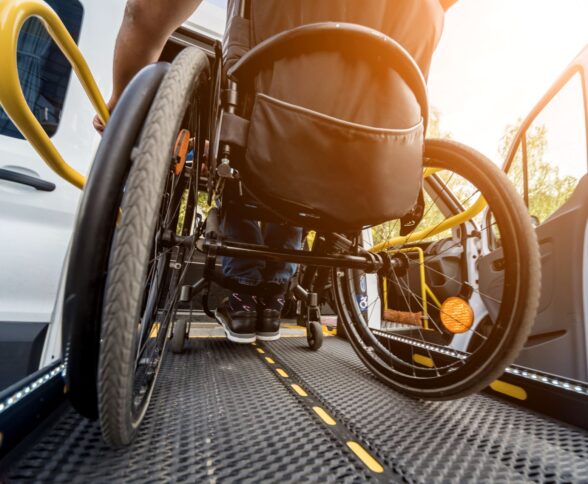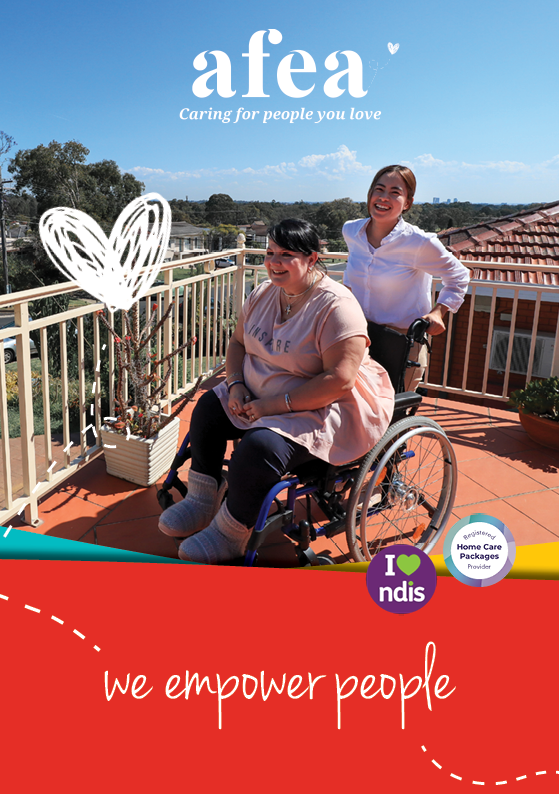The last few weeks have been filled with updates regarding disability care and the NDIS. We’re consolidating the news here – keep reading to learn more!
- Government Response to the Disability Royal Commission
- NDIS Provider and Worker Registration Taskforce Advice

Government Response to the Disability Royal Commission
In late July, the Australian government, along with all states and territories, formally responded to the Royal Commission into Violence, Abuse, Neglect and Exploitation of People with Disability.
The Royal Commission’s final report was first published on 29 September 2023. The report includes 222 recommendations and sets out a vision for an inclusive Australia.
Of the 222 recommendations, the Australian Government has primary or shared responsibility for 172 recommendations.
Only 13 were accepted in full. In addition, the government has
- accepted, or accepted in principle, 130 recommendations
- committed to considering 36 recommendations
- noted six recommendations.
You can access the Executive Summary here.
The government is making the following investments to disability care and support as part of the first phase of its response.
Rights and discrimination:
- $6.9 million for disability discrimination law reform
- $12.1 million to amend the Migration Health Requirement to be fairer for children with disability who are born and living in Australia
- $39.7 million in additional funding to establish a new individual disability advocacy program
Safety:
- $15.6 million to establish a Quality and Safeguarding Framework and Disability Support Ecosystem Safeguarding Strategy
- $4.4 million to ensure people with disability have access to consistent community visitor schemes
- $2.6 million to continue the National Disability Abuse and Neglect Hotline and Complaints Resolution and Referral Service
- $0.5 million to apply a disability lens to the First Action Plan 2023‑2027 of the National Plan to End Violence Against Women and Children 2022-2032
- $0.25 million to ensure guidance materials for family, domestic and sexual violence front line services are accessible for women and girls with disability in Australia
- $1.25 million to expand the Safer Girls Safer Women project to support women, girls and gender diverse people with disability
- $1.2 million towards a whole‑of‑government approach to reduce and eliminate the use of restrictive practices
Inclusion and access
- $3.7 million to continue the Primary Care Enhancement Program for People with Intellectual Disability
- $12.3 million for a national approach to accessible information and communications for people with disability
- $19.6 million to lift disability responsiveness and capability of key professional workforces and support grassroots efforts to improve community attitudes and understanding of disability
Employment
- $23.3 million to establish a Disability Employment Centre of Excellence
- $227.6 million in additional funding to implement a new specialist disability employment program commencing 1 July 2025
Read more:
Joint Government Response | Department of Social Services, Australian Government (dss.gov.au)
NDIS Provider and Worker Registration Taskforce Advice
In December, we reported that the NDIS Review Panel has released their Final Report, “Working together to deliver the NDIS”. The report contains 26 recommendations and 139 actions.
One of the recommendations is ‘a graduated risk-proportionate model’ for regulating providers of disability services.
The Government formed a taskforce to get expert advice on designing and setting up a new regulatory model for NDIS providers and workers.
The Taskforce presented its report to the Minister in July and released the report to the public on 2 August.
The Taskforce consisted of:
- Ms Natalie Wade, disability rights lawyer (Chair);
- Mr Michael Borowick JP, former ACTU Assistant Secretary;
- The Hon Vicki O’Halloran AO CVO FAICD, former Administrator of the Northern Territory and former President of National Disability Services Australia;
- Professor Allan Fels AO, former chair of the Australian Competition and Consumer Commission.
They had 11 recommendations, including the following recommendations directed to providers.
The Taskforce recommends:
- Not all providers as currently defined in the legislation should be registered, an example of the providers who would not be registered are mainstream retailers. The legislation currently defines a NDIS provider to be anyone who receives NDIS funding that is not a participant.
- A legislative framework to support the recommended registration model with 4 types of registration based on risk. These four types are Advanced Registration, General Registration, Service for One/Self Directed Support Registration and Basic Registration. (You can find more info about this in Annexure A of the full advice.)
- Platform providers should be registered
- The NDIS Commission should have the right to enter Group Homes unannounced.
- All providers of Supported Independent Living (SIL) and Home and Living supports should be registered under the current registration model within the next 12 months
- Strengthened Provider Obligations with focus on increasing the quality of support in the sector. These obligations relate to the Code of Conduct, worker screening requirements, complaints and incident reporting, and performance measurements.
- Strengthened or new provider processes to enforce provider obligations including Code of Conduct and worker screening attestations, suitability assessment of provider and key personnel and ongoing monitoring and compliance
- Establishment of a Worker Registration Scheme
- Recognition of allied health practitioners for the recommended worker registration scheme for those who hold professional registration in their field
The Taskforce is clear on the services and supports that must be included in the registration model:
- A support or service offered by a person or entity to people with disability, including a participant or prospective participant.
A support is described as one of the following:
- provision of housing or home and living support
- supports for a person with disability to live independently, including with shared supports with other people with disability
- provision of day programs in centre-based environments
- employment support provided to people with disability to find work or obtain skills and readiness
- Australian Disability Enterprises
- provision of accommodation on a short-term basis or for respite services
- provision of in-home care and support services to a person to maintain their hygiene, mobility, social and economic participation
- support to access the community or engage in social participation
- intermediary services to support a person to manage their NDIS Plan, support services or financial management
- manufacture or sale of equipment or assistive technology, including modifications
- provision of disability-specific transportation services
- allied health and therapeutic services
- early childhood and early intervention services
- positive behaviour support practitioner support and implementation
- interpreter services
- health services, such as paediatric support or optometry
- capacity building support
- peer support programs and initiatives
- orientation and mobility services.
What happens next?
- Registration for SIL and Home and Living Supports. The Taskforce recommend the registration of all providers of SIL and Home and Living supports under the current registration model within the next 12 months.
- Design and consultation. The Taskforce recommended further consultations with the disability community to develop and implement their recommendations.
Read the full advice: NDIS Provider and Worker Registration Taskforce | Department of Social Services, Australian Government (dss.gov.au)
We stay updated on all things NDIS and disability care! Contact our team of experts to start services with Afea.















